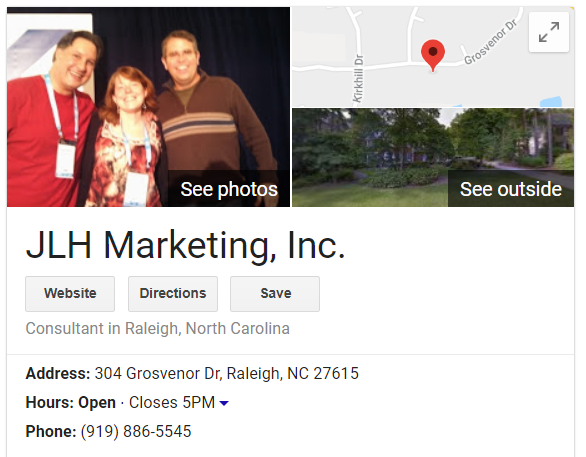Editor’s note: “Ask an SEO” is a weekly column by technical SEO expert Jenny Halasz. Come up with your hardest SEO question and fill out our form. You might see your answer in the next #AskanSEO post!
Welcome to another edition of Ask an SEO! Today’s question comes from Isaul from Mexico, who asks:
Very often, I see that most SEO advice, even technical, falls under a user-first approach. That is, most SEO questions can usually be answered by a user-first mentality. Can you mention some cases where this type of mentality doesn’t align with what an expert SEO would advise? In other words, in which cases does the user-first mentality for SEO not apply?
I love this question! And I would love to know what other people in the industry think about this, too – so please leave a comment (click on the “comment” icon that appears along with the social share buttons) after you’ve read my answer.
From my perspective, there’s only one area I can think of that really has no direct user benefit, and that’s schema. Bear with me – I can explain.
Schema markup on your site has become the standard – in other words, if you don’t have it, you aren’t doing everything you could do to succeed.
But schema is one area of code that literally only helps search engines. Users never see your schema code.
They see the outcome of it, you argue.
Yes, that’s true.
If you code things properly with schema and you rank well and Google decides to show the markup in the search engine results pages (SERPs), then it’s helpful for users.
But Google is solidly on record as saying they don’t always use the schema you provide, and that sometimes, they may pull a schema-like element into the SERP even if you haven’t marked it up.
In theory, if you create a great site, with clean code that clearly lays out things like event date and time, or organization address, Google will still pull it and use it like they do schema.
I’ll use my site (JLH Marketing) as an example. It’s a classic example of the cobbler whose children have no shoes. I only recently got it mobile-friendly!
The only schema I have on the site is a tiny snippet in the head courtesy of Yoast that identifies the site URL and ties my personal name to the site.
The only schema on the site:
<script type='application/ld+json'>{"@context":"https://schema.org","@type":"WebSite","@id":"#website","url":"https://www.jlh-marketing.com/","name":"JLH Marketing","potentialAction":{"@type":"SearchAction","target":"https://www.jlh-marketing.com/?s={search_term_string}","query-input":"required name=search_term_string"}}</script>
<script type='application/ld+json'>{"@context":"https://schema.org","@type":"Person","url":"https://www.jlh-marketing.com/","sameAs":[],"@id":"#person","name":"Jenny Halasz"}</script>
Yet, I have a knowledge panel, complete with physical address, map, and blurry photos from my GMB listing:

I don’t have a Wikipedia page, I’ve never submitted myself to Freebase, and there’s no other direct source for Google to get this information.
And it’s not just because I have a Google My Business (GMB) page, because I had it for a good year or more before this knowledge panel showed up.
There are lots of other amazing search professionals (Susan Wenograd, for example) that have Google+ pages but no knowledge panel. I have no reviews on Google (although I’m always happy to get them!).
This is common in real estate. Often you will see listings in search results which are complete with all the real estate markup – address, price, days on market – without any schema appearing anywhere on the page.
Here’s one example:
There is no schema anywhere on that page that identifies #1C and #12B specifically. Search for [288 Lexington Ave nyc] and see for yourself.
My point is, Google is divining this information from the web. From the websites and other sources. They didn’t need schema to do it.
In fact, Google doesn’t need schema at all. We’re simply training them to be better at recognizing elements they can mark up. It may stick around for good, but it will never be 100 percent necessary.
Therefore, in my opinion, I think schema is a search engine first SEO recommendation, not a user-first one.
I’m sure a lot of you want to argue with me right now, so feel free to leave a comment. Maybe you can change my mind!
Have a question about SEO for Jenny? Fill out this form or use #AskAnSEO on social media.
More Resources:
Image Credits
Featured Image: Image by Paulo Bobita
Screenshots by author, November 2018
Subscribe to SEJ
Get our daily newsletter from SEJ’s Founder Loren Baker about the latest news in the industry!